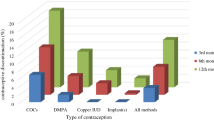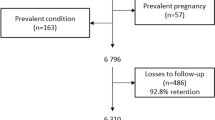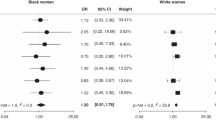Abstract
During 1968-1980, 1176 women aged 16-50 years with newly diagnosed breast cancer and a like number of matched controls were interviewed at 9 teaching hospitals in London and Oxford and asked about their use of oral contraceptives. The results were reassuring. A few statistically significant differences in oral contraceptive use were found between the breast cancer and control groups, but the data were subdivided in many ways so that some "significant" differences would have been expected through the play of chance alone. Certainly no patterns of risk emerged which would suggest that any of the associations were causal. It must be stressed, however, that the data are still sparse in some important subcategories--for example, only small numbers of both cases and controls had prolonged oral contraceptive use before their first term pregnancy. For this reason, it is important that information on the possible relationship between pill use and breast cancer should continue to be collected. Women who had never used oral contraceptives presented with appreciably more advanced tumours than those who had been using oral contraceptives during the year before detection of cancer, while past users were in an intermediate position. These differences in staging were reflected in the pattern of survival. Possible explanations for these observations include "surveillance bias" among oral contraceptive users leading to earlier diagnosis and a beneficial biological effect of oral contraceptives on tumour growth and spread. Women with breast cancer reported never having used any method of contraception and heavy cigarette smoking (greater than or equal to 15 per day) significantly less often than controls. We could find no obvious explanation for the former observation, but suspect that the latter reflects the unrepresentative smoking habits of our hospital controls rather than a protective effect of smoking against breast cancer.
This is a preview of subscription content, access via your institution
Access options
Subscribe to this journal
Receive 24 print issues and online access
$259.00 per year
only $10.79 per issue
Buy this article
- Purchase on Springer Link
- Instant access to full article PDF
Prices may be subject to local taxes which are calculated during checkout
Similar content being viewed by others
Rights and permissions
About this article
Cite this article
Vessey, M., Baron, J., Doll, R. et al. Oral contraceptives and breast cancer: Final report of an epidemiological study. Br J Cancer 47, 455–462 (1983). https://doi.org/10.1038/bjc.1983.74
Issue Date:
DOI: https://doi.org/10.1038/bjc.1983.74
This article is cited by
-
Contraception for Cancer Survivors
Journal of General Internal Medicine (2009)
-
Hormonal content and potency of oral contraceptives and breast cancer risk among young women
British Journal of Cancer (2003)
-
Hormone replacement therapy for breast cancer survivors: Facts versus fears
International Urogynecology Journal and Pelvic Floor Dysfunction (1995)
-
Oral contraceptive use and risk of breast cancer in older women (New Zealand)
Cancer Causes and Control (1995)
-
Cigarette smoking, steroid hormones, and bone mineral density in young women
Calcified Tissue International (1992)



